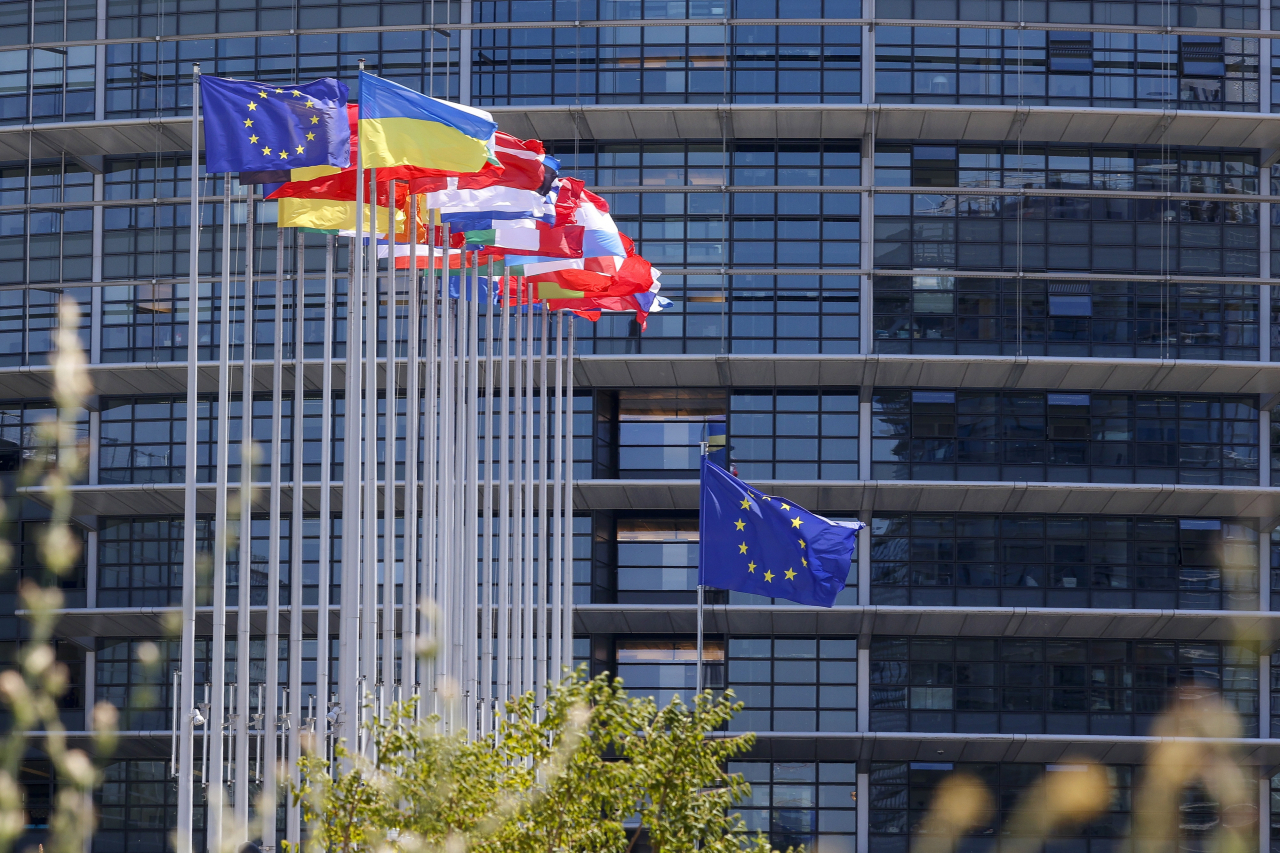Korea unfazed by new EU battery law
Trade ministry dismisses concerns over EU battery law negatively impacting Korean firms
By Kan Hyeong-wooPublished : June 15, 2023 - 16:00

The South Korean government dismissed concerns over the domestic battery makers’ status in the European market after the European Parliament passed a sustainable battery law on Wednesday.
“The law does not contain provisions that discriminately apply to certain companies or work against only Korean companies, so it is not expected that the implementation of the law will shake our companies' market status in the EU,” the Ministry of Trade, Industry and Energy said in a statement.
According to the Korea International Trade Association’s report, Korean companies led by LG Energy Solution, SK On and Samsung SDI had a 63.5 percent market share in the EU last year.
The EU battery law aims to strengthen sustainability and circulation throughout the entire battery life cycle. To that end, the law includes policies to track the amount of carbon emissions over a battery’s life cycle, reuse raw materials such as lithium and nickel, and implement a battery passport system that electronically records information on battery production and use.
As the law reaffirms the global standard to strengthen battery’s eco-friendliness, the ministry said it provides an opportunity to increase industrial competitiveness if supply chains and systems are put in place.
The ministry pointed out that 10 or more sub-laws of the battery act that will contain specific implementation methods for each clause will be enacted between 2024 and 2028, so the actual application of the law will take a considerable time.
“As there is some time before the full implementation of major provisions, Korean companies are positioned to calmly respond to the requirements of the law and the enactment of sub-laws in the future,” said the ministry.
In the case of carbon footprint, the government said the affected companies will need to continue to put efforts into what they had been pushing for even before the law’s enactment -- setting up an emission statistics system and reducing carbon emissions -- and focus on developing battery recycling supply chains and technology.
Korean companies seemed unfazed by the EU battery law.
“The law is not a total surprise. If you look at other sectors in the EU, you could expect that the standard of eco-friendliness is pretty high there. So (the battery law) is in line with that. Since we already have been emphasizing the importance of (ESG), we will prepare for the sub-laws accordingly,” said an official at a Korean battery maker.
The ministry said it will keep working closely with Korean firms to cope with the enactment of sub-laws, adding that the government plans to draft relevant rules such as battery management regulations and assessment system of carbon emissions.



















![[Today’s K-pop] Treasure to publish magazine for debut anniversary](http://res.heraldm.com/phpwas/restmb_idxmake.php?idx=642&simg=/content/image/2024/07/26/20240726050551_0.jpg&u=)